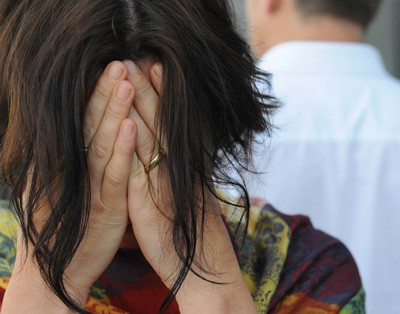Morocco's Amina Filali's Death Sparks Debate on Forced Marriage in UK

The shocking death of Amina Filali, the 16-year-old Moroccan girl who took her own life after she was coerced into marrying her rapist, has renewed debate about the criminalisation of forced marriages in the UK.
David Cameron announced in October that he wanted to strengthen the law against forced marriage by making it a criminal offence to breach a forced marriage protection order. Some ministers proposed to go further, making it a separate criminal offence.
The Home Office has been sceptical about introducing a new criminal offence that would be difficult to define and difficult to enforce. Existing offences such as kidnapping, people trafficking and abduction were enough to deal with the problem, it said.
But in December home secretary Teresa May launched consultations into making forced marriage a crime. The issue is gaining momentum among organisations that work with women victims of abuses.
Forced and arranged marriages: a basic distinction
"Without legislation, forced marriages will continue to go unpunished," Polly Harrar, founder and director of the Sharan Project told the IBTimes UK. The Sharan Project is a charity that supports women, particularly from South Asian backgrounds who have been disowned or forcefully or voluntarily left home due to fear of violence, forced marriage, cultural conflict and discrimination.
The key word to distinguishing a forced marriage from an arranged one is that of choice, according to Harrar. "A forced marriage occurs without the consent of one or both parties and where duress is used," she explained. "An arranged marriage occurs when there has been an initial introduction, often with family involvement and both parties willingly consent. Many communities around the globe favour this tradition. The point is that even in an arranged marriage you should always have the choice to be able to say no."
Harrar agrees that this distinction can become blurred if cultural and religious factors contribute to influence personal choices. A new poll for the BBC's Panorama programme discloses that two-thirds of young British Asians believe families should live according to the concept of "honour".
Around 18 percent of the 500 people questioned felt that certain behaviour by a woman which could affect her family's honour justified physical punishment. Breaking from pre-arranged marriages was one of these.
The Home Office released alarming figures of forced marriages in the UK, with 5,000 to 8,000 reported cases each year. They include women from Afghanistan, north and east Africa, Bangladesh, India, Iraq, Iran, Pakistan and Turkey.
The figures show that more than half of them relate to girls under the age of 16. Some are as young as eight.
"These figures were not available 10 years ago and this highlights the government is taking the issue seriously," said Harrar. "The subject is gaining more exposure in the news, but we have to be careful to avoid generalizations, like saying all South Asians are in a forced marriage, for instance."
"Prevention is not enough"

Harrar believes the issue of forced marriage is so crucial that many other issues, such as domestic violence, abuse and rape come under it. She hits back at critics of a new law in Britain, which argue that criminalisation might discourage victims from speaking out about the abuses and risk cutting them off from their families.
"I think we should take the risk," Harrar argued. "The alternative is to continue to ignore the problem and the women who are already suffering. We need to encourage others to come forward and feel safe in doing so, this does not mean that everyone will take their parents to court, but with this law they can know 'it's an illegal practice' and be protected.
"If they don't come forward because of the 'honour' of the family, it's likely to happen anyway," she said. "It's not going to get worse just because it is criminalised but it may mean more people are protected from forced marriage".
The UK's forced marriage unit, which provides direct assistance to victims, dealt with 1,618 cases in 2008, 1,682 in 2009 and 1,735 in 2010.
Current legislation surrounding forced marriage is civil not criminal. The Forced Marriage Act 2007 allowed courts to issue forced marriage protection orders when a victim, friend or local authority raises the alarm. A breach of such an order may result in up to two years' imprisonment.
Harrar said that prevention was not enough to fight the multiple layers of abuse that may lead to forced marriages. "We should be working with a bottom-up and top-down strategy," she said. "From the bottom, we to need educate people about forced marriage and change how they think and that's prevention. From the top, legislation is needed to make it clear that there are consequences for abuse and this is not acceptable. Prevention alone is not going to work."
Consultations between the Home Office and various organisations that work with women victims of abuses are expected to end in March.
Amina killed herself by swallowing rat poison in her hometown of Larache in northen Morocco. One year ago, she was raped by a man who was 10 years her senior. The family agreed with a civil court ruling that she should marry her rapist in order to preserve their honour.
But in the aftermath of the tragedy, the father denied the claims and said they were "advised" by the prosecutor to arrange a marriage with the man.
© Copyright IBTimes 2025. All rights reserved.






















